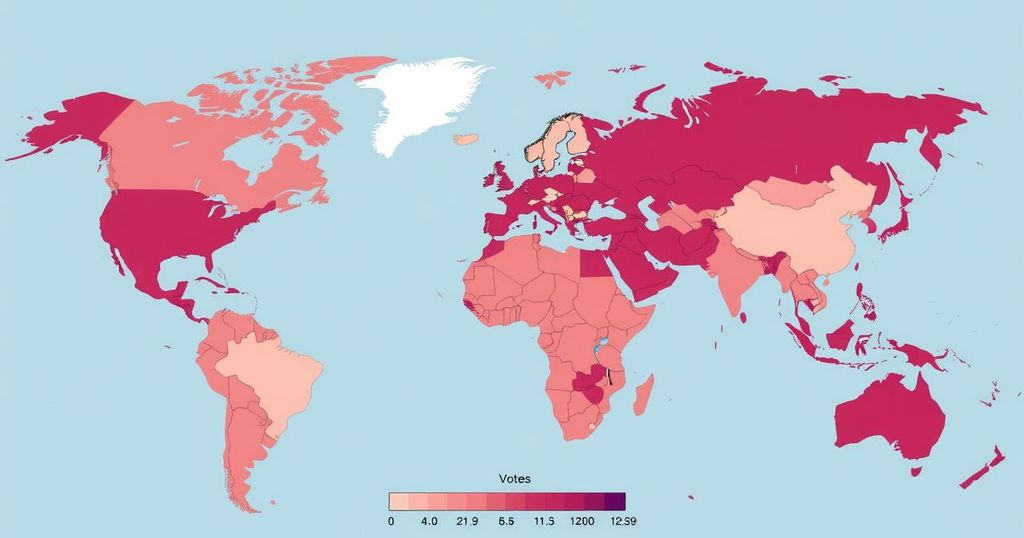In 2024, over 70 countries voted in elections, influencing half of the global population. India led in voter participation with 637.4 million, though Modi’s party lost its majority. Trump won in the United States while significant changes occurred in countries like Botswana and Iran. Voter turnout varied widely, illustrating both political stability and unrest across different regions.
In 2024, elections were held in over 70 countries globally, influencing nearly half of the world’s population, approximately four billion individuals. Among the most notable elections were those in the five most populous nations: India, the United States, Indonesia, Pakistan, and Bangladesh. Global voter turnout averaged 61 percent, with countries experiencing both expected and surprising outcomes. Where some leaders, such as India’s Narendra Modi and the United States’ Donald Trump, maintained power, others faced unprecedented challenges, including removal from office due to significant civil unrest.
India led the world’s largest democratic exercise with 637.4 million voters participating over six weeks, though Modi’s party lost its majority yet successfully formed a coalition government. In the United States, Trump won a closely contested election against Kamala Harris, while in Indonesia, Prabowo Subianto was elected president with a significant majority.
Meanwhile, Tunisia experienced a low voter turnout of 28.8 percent amid political turmoil, while Rwanda achieved an unprecedented 98.2 percent turnout in re-electing Kagame. Many countries saw incumbents reaffirmed amid accusations of electoral malpractice; however, several nations also witnessed the emergence of new leadership, such as Duma Boko in Botswana, who ended decades of power by the ruling party.
In the context of global challenges such as economic crises and political unrest, the elections of 2024 reflect shifting dynamics in leadership and governance, with implications for democracy and human rights across various regions.
The international electoral landscape of 2024 highlighted various democratic processes across numerous countries, revealing both vibrant democratic participation and notable challenges. With elections taking place in over 70 nations, voter behavior and the resulting political outcomes demonstrated the complexities of modern governance. Key trends included shifts in power dynamics with the return of many incumbents, the rise of new leaders, and significant fluctuations in voter turnout that underscored growing political engagement and discontent in different regions.
The 2024 election cycle revealed significant trends in global governance, marked by high voter turnout in some areas and stark challenges in others. Notably, incumbents often retained power but with diminished majorities, while several new leaders emerged, indicating a potential realignment of political forces worldwide. As nations grapple with economic pressures and social movements, the electoral outcomes will likely shape future political landscapes, affecting citizens’ rights and democratic practices.
Original Source: www.aljazeera.com






